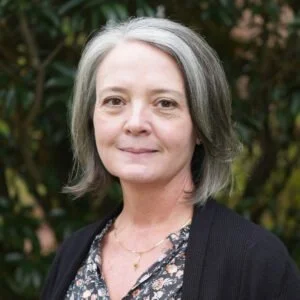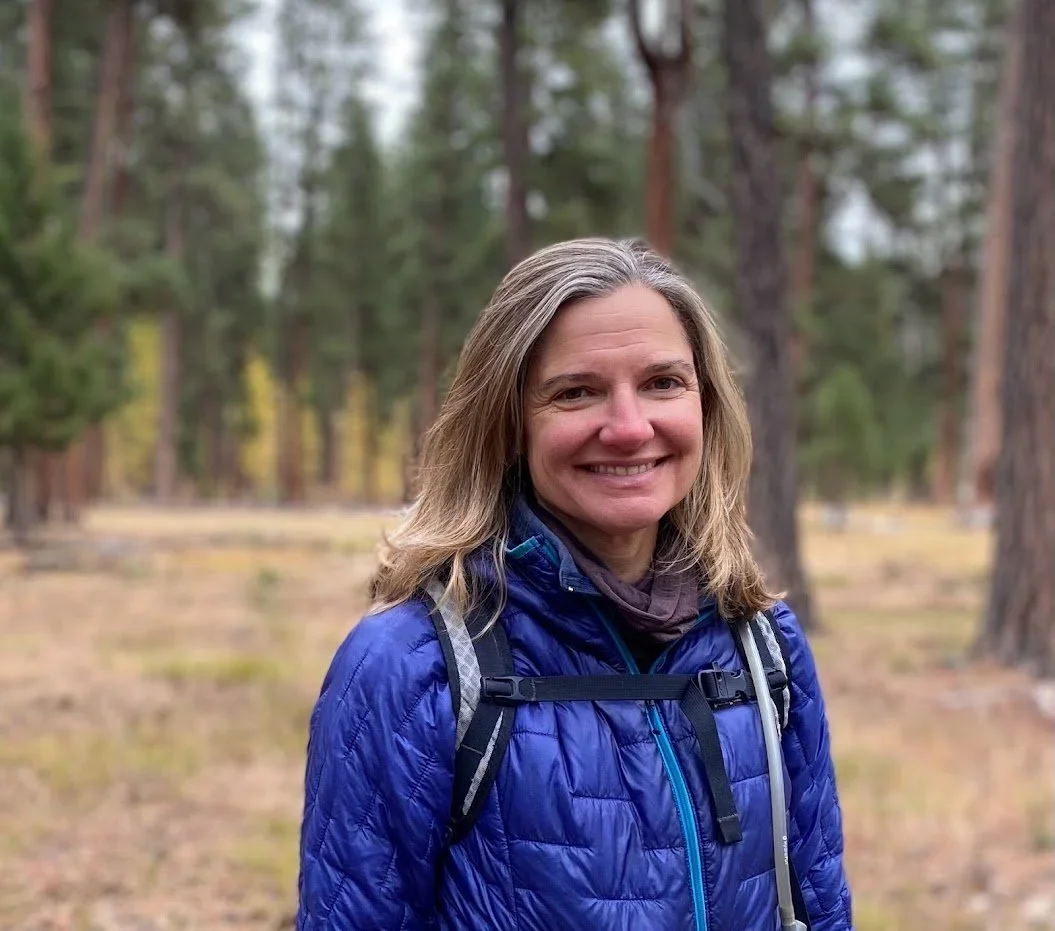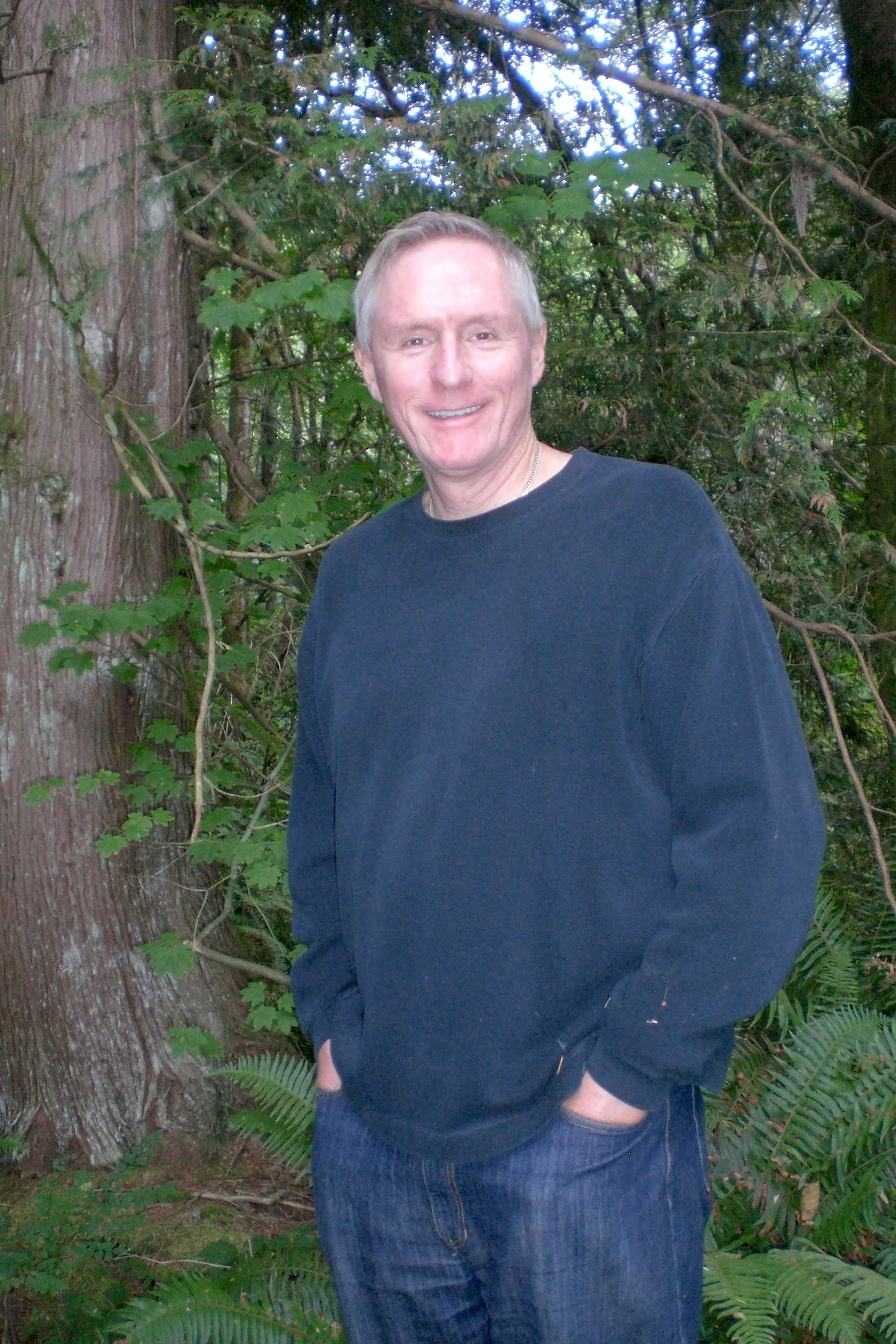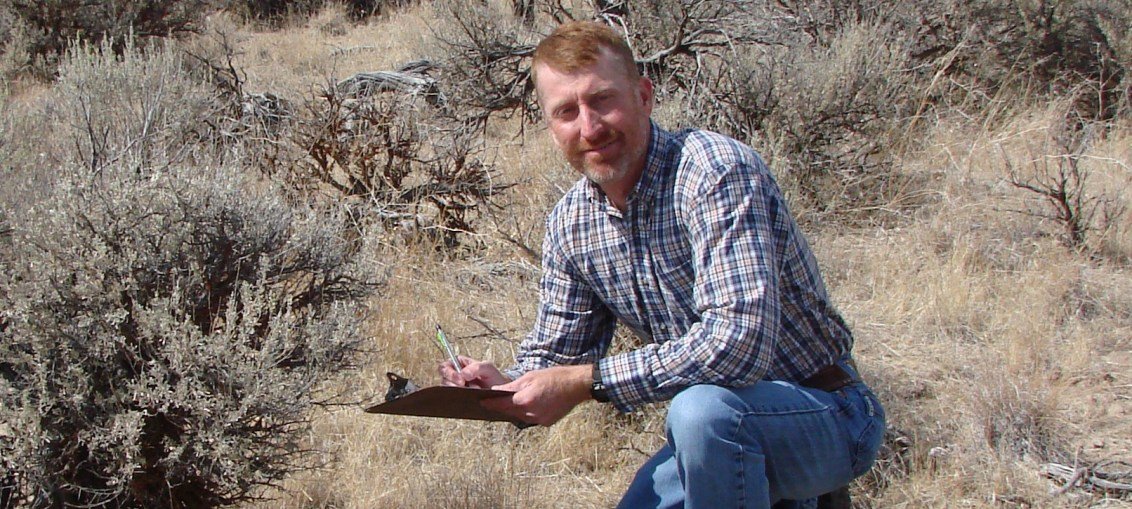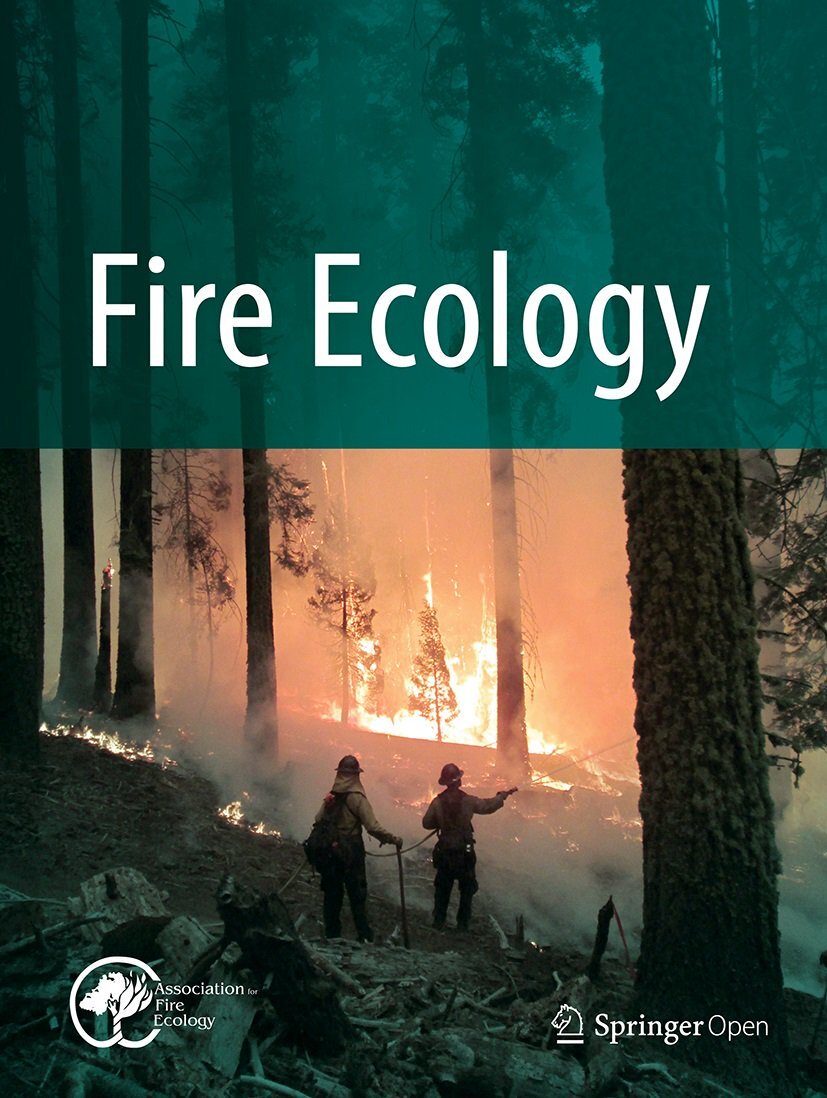AFE Award Winners
2025
2025 Early Career Award
Gavin Jones
Gavin (he/him) is a Research Ecologist with Rocky Mountain Research Station – Wildlife Ecology Program (USDA Forest Service) and holds an appointment as an adjunct Assistant Professor in the Biology Department at the University of New Mexico. He completed his M.Sc. and Ph.D. at the University of Wisconsin-Madison and did postdoctoral research at the University of Florida. Gavin is an Associate Editor at Frontiers in Ecology and the Environment and Fire Ecology which are the flagship peer-reviewed scientific journals of the Ecological Society of America and the Association for Fire Ecology, respectively. Gavin has received recognition for early career research achievement from several professional societies and institutions including the National Academy of Sciences (2025 Kavli Fellow), the Association for Fire Ecology (2025 Early Career Award), the American Ornithological Society (2024 Ned K. Johnson Early Investigator), and the USDA (2022 Early Career Scientist).
2025 Distinguished Leader Award
Heather Alexander
Dr. Heather D. Alexander is a professor of forest and fire ecology in the College of Forestry, Wildlife, and Environment at Auburn University. Her research focuses on understanding forest ecosystem vulnerability in the face of changing fire disturbance regimes using observations across natural gradients and field–based experimental manipulations. She has studied the implications of fire suppression and ‘mesophication’ on composition, structure, and flammability of oak, mixed, and pine forests of the eastern U.S. for 20 years and has spent over a decade investigating wildfire implications for forest growth and regeneration dynamics in Siberian forests underlain by permafrost soils.
2025 Outstanding Associate Editor
Sharon Hood
Sharon Hood is a Research Ecologist at the USDA Forest Service, Rocky Mountain Research Station Fire Sciences Lab in Missoula, MT. She studies tree mortality from fire, fire and bark beetle interactions, pine defenses, and treatment effectiveness to improve forest resilience to disturbances and stress. She received a BS in Forestry from Mississippi State University, a MS in Forestry from Virginia Tech, and a PhD in Organismal Biology and Ecology from the University of Montana. Sharon has been an AFE member since 2007 and is an AFE certified Senior Wildland Fire Ecologist. She served on the AFE board from 2016-2023, is the chairperson of the journal committee, and has been on the Fire Ecology editorial board since 2016.
Editors Note: Sharon was an easy pick for this year’s Outstanding Associate Editor. First, she is easily our most prolific and thorough AE as she has taken on at least five assignments a year for the last seven years and has done a stellar job. She is also somewhat unique in that she has a wide span of deep knowledge in a number of diverse fire ecology fields. She also serves as substitute EiC whenever the EiC is an author on a submitted paper. But that is just the start. In addition, for the last seven years she has served as Chair of the AFE Publications Committee that oversees the journal. She is mostly responsible for the journal becoming the impactful publication that it is today by steering the transition of the journal from a small AFE publication to one of the top ecological journals in the world. By her guidance, the journal’s impact factor has tripled, downloads have increased by a factor of 10, and submissions have quadrupled. Thank you, Sharon, for all you have done for the journal. This is an honor well deserved.
2025 Outstanding Editor-in-Chief
Bob Keane
2024
2024 Outstanding Associate Editor
Dave Peterson, Professor of Forest Biology at the University of Washington, Emeritus Senior Research Scientist with the Usfs Pacific Northwest Research Station
Dave Peterson is Professor of Forest Biology at the University of Washington, and Emeritus Senior Research Scientist with the U.S. Forest Service, Pacific Northwest Research Station. He has conducted research on fire science and climate change throughout the western United States and has published 280 scientific articles and 5 books on these topics. He was a contributing author for the Intergovernmental Panel on Climate Change and was co-lead for the Forests chapter of the Fourth National Climate Assessment. He was formerly Editor-in-Chief for the journal Northwest Science, and served as Associate Editor for Ecological Applications, Canadian Journal of Forest Science, and Environmental Science and Policy. He currently works on climate change vulnerability assessments and adaptation on federal lands in the western United States in association with the USDA Northwest Climate Hub and the Western Wildland Environmental Threat Assessment Center. Dave lives on Mountain Heart Tree Farm in northwest Washington, where he has planted 3000 native trees and cultivates bonsai, epiphyllums, and a variety of vegetables, fruits, and flowers.
Editors Note: Dave has been a rock on our editorial mountain since the journal’s inception. He has taken the most contentious and ground-breaking papers and lead the review of these papers with objectivity and professionalism. He also has stepped in and taken over the AE role on nearly all our major emergencies. His reviews are of the highest quality and they are done quickly and without problems. Thank you Dave for all the work you have done for the journal.
2024 journal Service Award
Karen Short, Research Ecologist, USFS Rocky Mountain Research Station
Karen Short is a Research Ecologist at the USFS Rocky Mountain Research Station located at the Missoula Fire Sciences Laboratory, Montana. She began her career in wildland fire science studying the effects of prescribed burns in southwestern national parks. Her current research is focused on wildfire risk assessment and mitigation efforts at national and regional scales. To support that work, she has developed and maintains several fundamental wildfire activity datasets and is a member of an informal confederation of interagency teams working to improve the availability and quality of wildland fire data for research and fire management applications.
Editor’s Note: Karen volunteered to be an editor for a special collection in Fire Ecology. Unbeknownst to her, most of the papers in that collection were written by authors who were also editors of the collection. As a result, she was assigned eight articles over the last two years and at one time she was working on five articles simultaneously – a new record for the journal. We thank her for the service above and beyond the call.
2023
2023 EARLY CAREER AWARD
Ellen Whitman, Research Scientist, Canadian Forest Service
Ellen Whitman holds a PhD in forest biology and management from the University of Alberta, where her work focused on fire ecology, with an emphasis on remote sensing of ecological fire effects and post-fire recovery in northwestern boreal forests. Currently, she is a wildland fire research scientist at the Canadian Forest Service's Northern Forestry Centre in Edmonton, Alberta. Her recent research scope includes dendrochronology analysis of historical wildfire and climate change impacts on fire and forests, with a focus on projects in the Northwest Territories and Yukon Territory. Ellen is a leader in collaborative research with Indigenous peoples and is currently engaged in studies that involve First Nations as partners in fieldwork and knowledge production. In addition to her scientific and management qualifications, she has extensive experience in remote alpine and boreal fieldwork through nine years leading field teams as a researcher in Canada. In her free time, she is a passionate user of Canada’s beautiful backcountry as an alpine touring skier and competitive ultra-distance runner.
2023 EARLY CAREER AWARD
Rachael Nolan, Senior Research Fellowship, Western Sydney University
Dr Rachael Nolan works at the intersection of plant ecophysiology, fire ecology and forest fire management. Her research bridges science, policy and management, aiming to provide an early warning of the risk of bushfires, and to predict their impacts on ecosystems under a changing climate. She is the Deputy Director of the New South Wales Bushfire and Natural Hazards Research Centre, and was a member of the Centre’s predecessor (the New South Wales Bushfire Risk Management Research Hub). Along with her colleagues in the Hub, she was awarded the prestigious Eureka Award for Applied Environmental Science, for providing the research base for the state government’s inquiry into the unprecedented 2019/20 ‘Black Summer’ bushfires. Rachael currently holds a Senior Research Fellowship at Western Sydney University. She completed her PhD in 2013 at The University of Melbourne, where she studied the impact of bushfires on water supply catchments.
2023 DISTINGUISHED LEADER IN RESEARCH
Michael Stambaugh, Professor and Director, University of Missouri, School of Natural Resources
Dr. Michael Stambaugh is an Associate Professor of Forest Ecology in the School of Natural Resources at the University of Missouri (MU). Since 2011, he has served as faculty advisor for the Mizzou Student Association for Fire Ecology (SAFE) and as the PI of the Oak Woodlands & Forests Fire Consortium funded by the Joint Fire Science Program. Since 2017, he has also served as the Director of the Center for Tree-Ring Science at the University. He has been awarded over $8 million in grants and contracts primarily focused on fire ecology and management of eastern U.S. ecosystems. He has published 86 peer-reviewed journal articles, 6 book chapters, 25 technical reports, and 47 popular articles on topics such as fire history, fuels characterization, prescribed fire effects, and climate change impacts on fire regimes. His research projects have taken place within 23 U.S. states primarily with partners in the U.S. Forest Service, National Park Service, U.S. Fish and Wildlife Service, and state agencies. Dr. Stambaugh is currently working on projects related to changes in fi re regimes and ecosystems in the northeastern U.S. and fire effects on physical and chemical wood properties.
2023 APPLIED FIRE SCIENCE AWARD
Tessa Nicolet, Fire Application Specialist, US Forest Service
Tessa Nicolet is a Fire Application Specialist with the US Forest Service, Rocky Mountain Research Station Wildland Fire Management Research, Development, and Application Program. She is focused on integrating fire science and ecological principles into wildland fire management strategic planning and project implementation. Her professional experience includes successful assignments at the field, forest, regional, national, and research station levels. This includes working with varying disciplines of natural resource management. From this, she has gained a unique perspective on land management and a better understanding of the importance of science, technology, collaboration, and communication in meeting sustainable resource management issues, especially involving the management of fire. She is involved in technology transfer and is currently the technical lead for the Interagency Fuel Treatment Decision Support System. She is committed to training others and has served on training course cadres for federal and state local, regional, and national courses as well as instructing at universities. Tessa’s vision and leadership are advancing fi re science innovation, knowledge exchange, technology transfer, land management planning, and decision support capabilities. Her efforts are elevating management capabilities and helping find meaningful solutions to complex challenges facing land management agencies, international partners, academic programs, and private landowners.
2022
2022 EARLY CAREER AWARD
Aya Brigitte N'Dri Kone, Nangui Abrogoua University, Abidjan, Ivory Coast
Since 2012, Dr. Aya Brigitte N’Dri Kone has developed many research projects to understand the role of fire season, the decision-making process of setting fires, and implications for crops and greenhouse gas emissions. She has led a research team since 2013 that initiated, for the first time in West Africa, experimental plots for studying different fire seasons in Ivory Coast savannas. Based on these studies, the team suggested appropriate fire management strategies which stopped bush encroachment observed in protected areas located in savannas. Their research activites identified main fire hotspots in Ivory Coast and fire periods in those hotspots. She has built a network of science collaborators both within the country and internationally, and she has been an invited speaker in 9 countries. Dr. N’Dri Kone has also developed active links with the public and private sectors, with a commitment to increase the quality of local community life and economy by the inclusion and application of research results, while applying leadership skills in team management. The impact of her research applies globally, encompassing human behavior and decisions about burning regimes in various savanna types, and the contribution of the Ivory Coast to global calculations.
2022 EARLY CAREER AWARD
Adrian Regos, Forest Science Center of Catalonia, Spain
Dr. Adrián Regos is post-doctoral researcher at the Forest Science Centre of Catalonia, funded by the Spanish Government Grant ‘Juan de la Cierva - incorporation’. He is also invited researcher at Universidade de Santiago de Compostela and BIOPOLIS/InBIO. His research aims to investigate how fire management and land-use policies could lead to more effective wildfire mitigation while ensuring biodiversity conservation and long-term sustainable use of ecosystem services in the current context of global change, and how to improve early warning monitoring systems in fire-prone regions for more efficient, science based decision-making. Dr. Regos has an outstanding publication record, and demonstrated leadership and project management skills. Over the last 8 years, he has published 53 articles in a variety of journals, has been co-author of 63 communications to national or international conferences, and has participated in 10 competitive national or international projects and 7 regional projects.
2022 DISTINGUISHED LEADER IN RESEARCH
Lori Daniels, University of British Columbia, Canada
Dr. Lori Daniels, Professor in the Department of Forest Conservation Sciences at the University of British Columbia, Canada, is a leader in fire ecology research. Her research advances both fundamental and applied knowledge of fire regimes using novel and interdisciplinary methods. Her research characterizes how fire, humans, and climate interact through time to drive forest and community resilience to wildfires. Dr. Daniels is a fire ecology expert trusted by her academic peers, government agencies, community research partners, and the public. Her academic publications have been cited thousands of times and she has been interviewed over 100 times by local to international media outlets. She has contributed her expertise to national and provincial strategies on fire, including the Blueprint for Wildland Fire Science in Canada and Addressing the New Normal: 21st Century Disaster Management in British Columbia. Her work results in concrete policy and practice impacts through collaborations with Indigenous communities, community forests, and government agencies. Dr. Daniels’ excellence in innovation, knowledge exchange, community-based research, and commitment to mentorship demonstrate her leadership in fire research. Her groundbreaking efforts are pushing disciplinary boundaries and resulting in meaningful steps to help communities, governments, and forests be better prepared for wildfires.
2022 DISTINGUISHED LEADER IN Education
Dr. Leda Kobziar, University of Idaho, USA
Dr. Leda Kobizar’s educational leadership bridges fire science and management. She and fellow graduate students established the Student Association for Fire Ecology. At the University of Florida, she led the first online program in Ecological Restoration. At the University of Idaho, she has very effectively taught more than six different graduate courses to shape the Fire Ecology and Management programs. As Director of the online Master of Natural Resources program, she has grown enrollment 10-fold to nearly 400 students, who are mostly working professionals. Dr. Kobziar has long been a leader in AFE. She was a President and member of the Board of Directors. While she was Chair, the AFE Education Committee developed the Joint Fire Science Program GRIN fellowship and TREE grants for student researchers and also developed the AFE Wildland Fire Ecologist, Fire Manager, and Academic Programs Certification system. Dr. Kobziar led a paper on the challenges and needs for educating future wildland fire professionals. She’s mentored eight PhD students and more than 150 master students from across the world. Her pioneering “pyroaerobiology” research reveals the biological role of wildland fire smoke. Her research in fire effects on plant community ecology, soils, and fuels is woven into her teaching and outreach.
2021
We enjoyed recognizing these 2021 awardees online during the plenary sessions at the 9th International Fire Ecology and Management Congress.
2021 EARLY CAREER AWARD, DR. DEVAN MCGRANAHAN
Dr. McGranahan’s passion for ecology began when pasture management on his family farm in Clay County, Iowa was modified to promote grassland birds. He became interested in fire ecology as a graduate student studying patch-burn grazing at Iowa State University. After a Fulbright Scholarship in South Africa studying fire in montane grasslands, and promotion to Associate Professor of Range Science at North Dakota State University in Fargo, North Dakota, Dr. McGranahan joined the USDA-ARS Livestock and Range Research Laboratory in Miles City, Montana in 2021. While at NDSU, Dr. McGranahan led students and faculty in prescribed burns and designed and taught a fire ecology course. He has published a co-authored textbook, The Ecology of Fire-Dependent Ecosystems, in addition to two book chapters and over 50 peer-reviewed research publications. Dr. McGranahan’s research is focused on sustainable livestock production in the Great Plains, with emphasis on how prescribed fire can help ranchers adapt to drought and manage healthy ecosystems.
2021 APPLIED FIRE SCIENCE AWARD, CHRISTOPHER HELZER
Christopher Helzer is The Nature Conservancy’s Director of Science in Nebraska. His main role is to evaluate and capture lessons from the Conservancy’s land management and restoration work and share those lessons with other land managers. He also works to raise awareness about the value of prairies and prairie conservation through his photography, writing, and presentations. He spends a lot of time photographing prairies and their inhabitants. His photos can be frequently be seen in publications and on websites of The Nature Conservancy. Chris is also a frequent contributor of text and photos to NEBRASKAland magazine and Wildflower magazine. He is the author of two books published by the University of Iowa Press, “The Ecology and Management of Prairies in the Central United States” and “Hidden Prairie: Photographing Life in One Square Meter.” Chris lives in Aurora, Nebraska, a beautiful small town right on the edge of tallgrass and mixed-grass prairie.
2021 DISTINGUISHED LEADER IN RESEARCH, DR. KIRK DAVIES
Dr. Kirk Davies is the Lead Rangeland Scientist for the Agricultural Research Service at the Eastern Oregon Agricultural Research Center in Burns, OR. He obtained dual B.S. degrees in Crop and Soil Science and Rangeland Resources in 2000. Dr. Davies then obtained a PhD in Rangeland Resources from Oregon State University in 2005. He was hired by the Agricultural Research Service in 2006. Dr. Davies has published 127 peer-reviewed scientific journal articles on fire ecology, grazing-fire interactions, post-fire management, and non-native species impacts and management. He has also published numerous management guides, extension articles, and proceeding papers. Dr. Davies is regularly requested to evaluate and advise on post-fire restoration plans for the Bureau of Land Management, US Fish and Wildlife Service, state agencies, and private landowners because of his expertise on the subject. His expertise on grazing-fire interactions has result in many request to assist in developing rangeland fuel management strategies. Dr. Davies’ work is recognized globally with researchers in South America, North America, Asia, and Australia implementing projects based on his pioneering research on novel post-fire restoration strategies.
2021 Presidential Service Award, Christopher Dicus
Chris Dicus is a Professor and Coordinator of the Wildland Fire and Fuels Management Program at California Polytechnic State University. Dr. Dicus is the current President of the Association for Fire Ecology (having served on the Board of Directors since 2006) and is also Coordinator of the Wildland Urban Interface Module of the California Fire Science Consortium. His research focuses on the wildland-urban interface and how fuel treatments impact potential fire behavior and ecosystem services. Dr. Dicus obtained his B.S. in Forestry-Wildlife from Louisiana Tech University, an M.S. focusing on fire ecology from Utah State University, and a PhD focusing on silviculture from Louisiana State University. He is a Certified Senior Wildland Fire Ecologist and a California Registered Professional Forester.
Chris has served on the Board of Directors for 15 years, participated in many committees, and dedicated countless hours to the organization. He recently wrote an article for Wildfire Magazine, AFE, IAWF Share Common Goals For Diversity, Education, Co-Operation, describing AFE's origins, our partnership with IAWF, and future aspirations. Chris was recognized with the Presidential Service Award at the 2021 Fire Congress. Thank you Chris for your long-lasting leadership and service to AFE!
2021 Outstanding Associate Editor Award, Jeffrey kane
The 2021 Outstanding Associate Editor goes to Jeffrey Kane, Associate Professor of Fire Ecology and Fuels Management and Director of the Wildland Fire Lab and Fire Resilience Institute at Humboldt State University. Jeff joined the Editorial Board in 2009 and has handled over 15 papers during his tenure. Thank you, Jeff, for all your hard work!
2021 Editor Service Award, Laurie Burk
Laurie Burk was recognized with an Editor Service Award at the Fire Congress. Laurie retired in June after being with the journal since nearly its inception. Her diligence and attention to detail has ensured that all papers published in Fire Ecology were professional and above most publishing standards. We thank Laurie for all her hard work over the last two decades.
Past Award Winners
2020
Outstanding Associate Editor Award: Guillermo E. Defossé, María Marcela Godoy, and María del Carmen Dentoni
2019
Outstanding Associate Editor Award: Todd C. Esque
2018
Special Service Award: Laurie Burk
2017
Outstanding Staff Award: Catia Juliana
Outstanding Volunteer Award: Geoff Babb
Presidential Service Award: Dr. Leda Kobziar
2015
Outstanding Service Award: Dr. Brian Oswald
2012
Presidential Service Award: Dr. Scott Stephens


